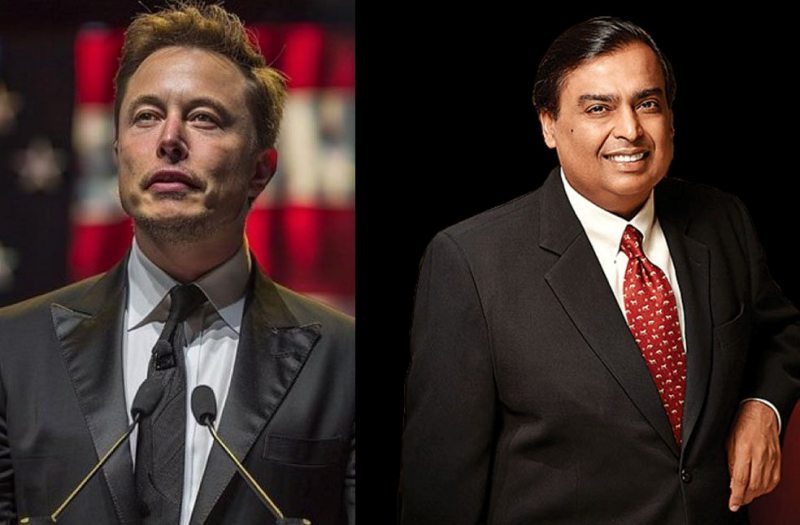The battle for dominance in India‘s satellite broadband market has begun with the government’s recent announcement to allocate the spectrum administratively rather than through auction. This move, endorsed by India’s Telecom Minister Jyotiraditya Scindia, opens the door for Elon Musk’s Starlink to provide satellite-based internet in India, despite warnings about its ties to the US military.
Concerns are rising among Indian nationalists and critics about potential security risks from Starlink’s association with the American armed forces. These fears are intensified by strained India-US relations, particularly after the FBI accused former R&AW operative Vikram Yadav of orchestrating a failed assassination attempt on Khalistani separatist leader Gurpatwant Singh Pannun in New York in 2023.
Additional diplomatic tensions involve issues related to Ukraine, Iran, the Quad, Russia, and Bangladesh.
International telecom and security analysts have also cautioned India about Starlink’s military connections. For instance, Musk’s prior disputes in Brazil illustrate his ability to control the content delivered through Starlink, raising questions about his influence over users’ access to information. As David Burbach of the U.S. Naval War College noted, no country has enough anti-satellite weapons to dismantle Starlink’s network.
India is aware of these security risks. The Ministry of Home Affairs has requested assurances that Starlink can intercept satellite internet traffic in India and prevent unauthorized foreign terminals from operating in the country. Starlink’s application for a global mobile personal communication by satellite services (GMPCS) license is still pending, contingent on security clearance from an inter-ministerial committee.
The government plans to implement safeguards if Starlink is conditionally approved and will only grant a full license after all terms are met, including clarity on Starlink’s shareholding and any investments or contracts from US security agencies.
Musk’s temperament is also a concern, highlighted by his contentious entry into Brazil’s market, where political tensions and legal disputes ensued after Musk’s social media platform, X (formerly Twitter), clashed with Brazilian authorities over account suspensions.
After Musk kept ignoring it even as the court levied fines against X and froze Starlink’s Brazilian financial assets in an attempt to pressure any Musk-owned company to pay the penalties, the Associated Press (AP) reported.
Misuse of Starlink in Brazil:
In Brazil, illegal miners and other lawbreakers in the Amazon rainforest have reportedly been using Starlink, the satellite internet service owned by Elon Musk’s SpaceX, to facilitate illegal activities.
Starlink’s technology, designed to provide high-speed internet in remote and underserved areas, inadvertently provided a significant advantage to miners operating in the dense, inaccessible regions of the Amazon. Here’s how they misused the service:
Real-Time Communication: Illegal miners used Starlink to establish reliable communication channels in remote areas, where traditional cell networks don’t reach. This enabled real-time updates, making it easier to coordinate activities, evade law enforcement, and warn others of approaching authorities.
Operational Efficiency: By staying connected, miners could manage logistics, maintain supply lines, and ensure the timely arrival of equipment and personnel. This efficiency helped expand mining operations more quickly and effectively than would have been possible without internet access.
Enhanced Surveillance: With high-speed internet, illegal mining operations were reportedly able to monitor environmental enforcement efforts, such as helicopters or vehicles approaching their locations. This helped them strategically plan their movements and avoid detection.
Economic Transactions and Coordination: Starlink’s internet access allowed miners to coordinate transactions and manage finances remotely, linking them to gold traders or other buyers. It facilitated their ability to run more sophisticated operations, from payment processing to managing resources and workforce deployment.
Organizational Networks: The internet access fostered the development of extensive criminal networks by allowing miners to stay connected with larger organized crime groups involved in illegal logging, mining, and other environmentally damaging activities in the Amazon.
In response to the misuse, Brazilian authorities have increased their efforts to curb illegal mining and associated activities by confiscating Starlink terminals found in these remote operations and attempting to track networks that support environmental crime.
The Brazilian government is also working with SpaceX to explore potential ways to prevent the service from being exploited in these illegal activities, balancing technological access for rural development with environmental protection.
The fight reached a boiling point when de Moraes instructed internet providers in Brazil to cut off access to X altogether and Musk refused to block the site on Starlink until the latter business got its accounts back. This incident underscores the potential for similar conflicts in India.
Despite these challenges, Prime Minister Narendra Modi’s enthusiasm for allowing Starlink into India is driven by several factors.
Starlink’s technology promises to enhance digital inclusion by providing high-speed internet to remote areas, boosting economic growth through improved digital infrastructure.
Partnering with SpaceX aligns with India’s vision of becoming a technology hub, fostering local tech development, and creating jobs.
Strengthening ties with influential global tech leaders like Elon Musk can also enhance diplomatic and economic relations with the US, promoting bilateral trade and investment.
Introducing Starlink can stimulate competition in the telecom and broadband sectors, leading to better services and lower prices for consumers. It aligns with national initiatives like Digital India, aiming to transform the country into a digitally empowered society.
While security concerns are significant, they can be mitigated through stringent regulatory frameworks, oversight, and collaboration with SpaceX to ensure compliance with India’s security requirements.
Modi’s government seems to believe that the benefits of integrating Starlink’s services outweigh the potential risks. But will India’s security be safeguarded?
India’s intelligence and national security agencies, including RAW and the IB, will conduct thorough assessments of the risks posed by foreign satellite communications services.
The entry of Starlink will introduce a complex dynamic, considering the close relationship between Modi and Mukesh Ambani, owner of Reliance Jio, India’s largest telecom company.
Ultimately, India views Elon Musk’s Starlink and SpaceX’s ties to the US military with cautious interest and strategic calculation.
While recognizing the technological benefits, India will likely impose strict regulatory measures to ensure national security is not compromised, balancing technological advancement with safeguarding national interests.
Elon Musk’s Starlink entry into India could also help the US counter China’s influence in the region.
Strengthening US-India ties, enhancing India’s communication infrastructure, and fostering strategic collaborations in defense and cybersecurity can contribute to regional stability and reduce reliance on Chinese technology.
However, India’s approach to integrating Starlink will be crucial in balancing these benefits with national security concerns.
Security concerns: However, global tech security analysts have raised alarms over the potential security risks tied to allowing Elon Musk’s companies, particularly Starlink, to operate in India.
Analysts highlight several concerns, primarily revolving around Starlink’s connection to SpaceX, which has collaborations with the U.S. Department of Defense, raising potential data privacy and security issues for India. Here are the main areas of concern:
Data Privacy and Surveillance: Analysts worry that Starlink’s data infrastructure could enable unauthorized surveillance or data extraction due to its close ties to the US military.
This could expose sensitive information of Indian users, infrastructure, and digital networks, potentially compromising national security.
Cybersecurity Risks: Since Starlink is a satellite-based internet provider, there are concerns about vulnerabilities in satellite cybersecurity.
If not properly monitored, this could open doors to hacking or cyberespionage, jeopardizing India’s digital ecosystem, which spans government, defense, and private sectors.
Regulatory Compliance and Oversight: Unlike traditional telecom companies, satellite-based services like Starlink pose regulatory challenges due to cross-border data flows and limited local oversight. This complicates India’s ability to enforce data localization laws or ensure Starlink complies with Indian regulatory standards.
Military Collaboration and Strategic Autonomy: Given SpaceX’s work with the US Department of Defense, analysts argue that allowing Starlink could impact India’s strategic autonomy.
India’s defense networks and critical infrastructure could be vulnerable if there is any US influence or data-sharing mandate involving Starlink operations.
Influence on Local Market and Competitors: Allowing Starlink to compete in India’s telecom market could also affect local competitors, particularly Reliance Jio.
Critics say this could lead to increased foreign influence in India’s telecom sector, reducing the self-sufficiency of local providers and impacting market dynamics.
Geopolitical Tensions: In a region where India navigates complex geopolitical relationships with both the US and China, Starlink’s entry could complicate diplomatic balances.
By strengthening ties with US-affiliated companies, India could inadvertently strain relations with other countries, especially if it relies on US-based infrastructure for critical connectivity.
To address these concerns, analysts recommend that India enforce strict regulatory frameworks and transparency protocols before granting Starlink a license.
ALSO READ: Emerging India-China bonhomie will impact Bangladesh’s domestic politics
Measures like data localization, regular security audits, and clarity on ownership and control are seen as necessary to safeguard India’s security and sovereignty while leveraging Starlink’s potential for digital inclusion and economic development.















